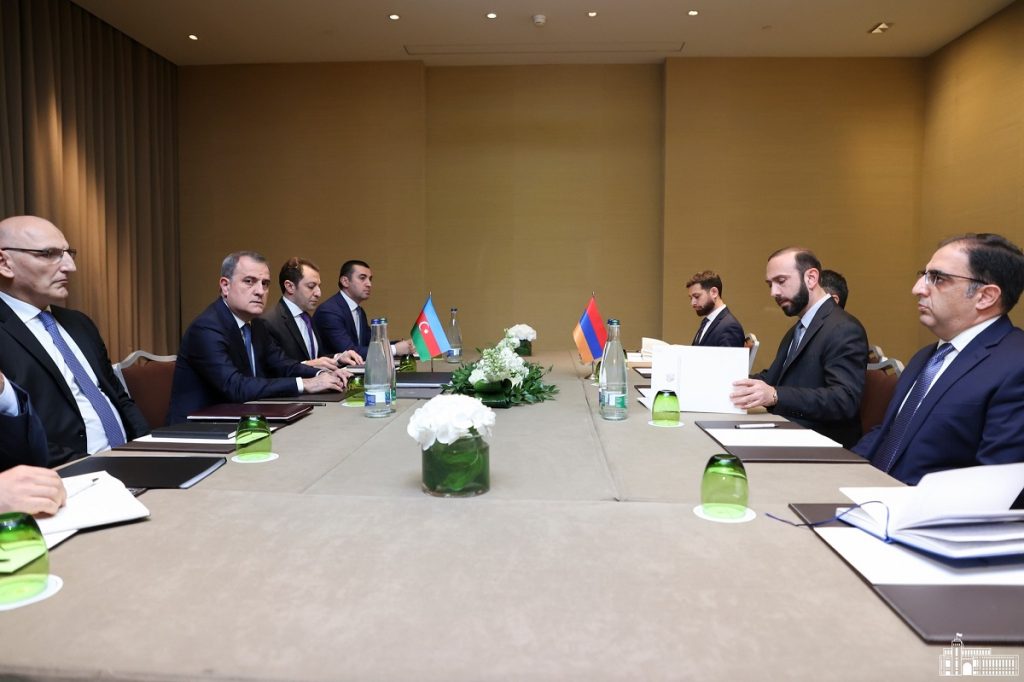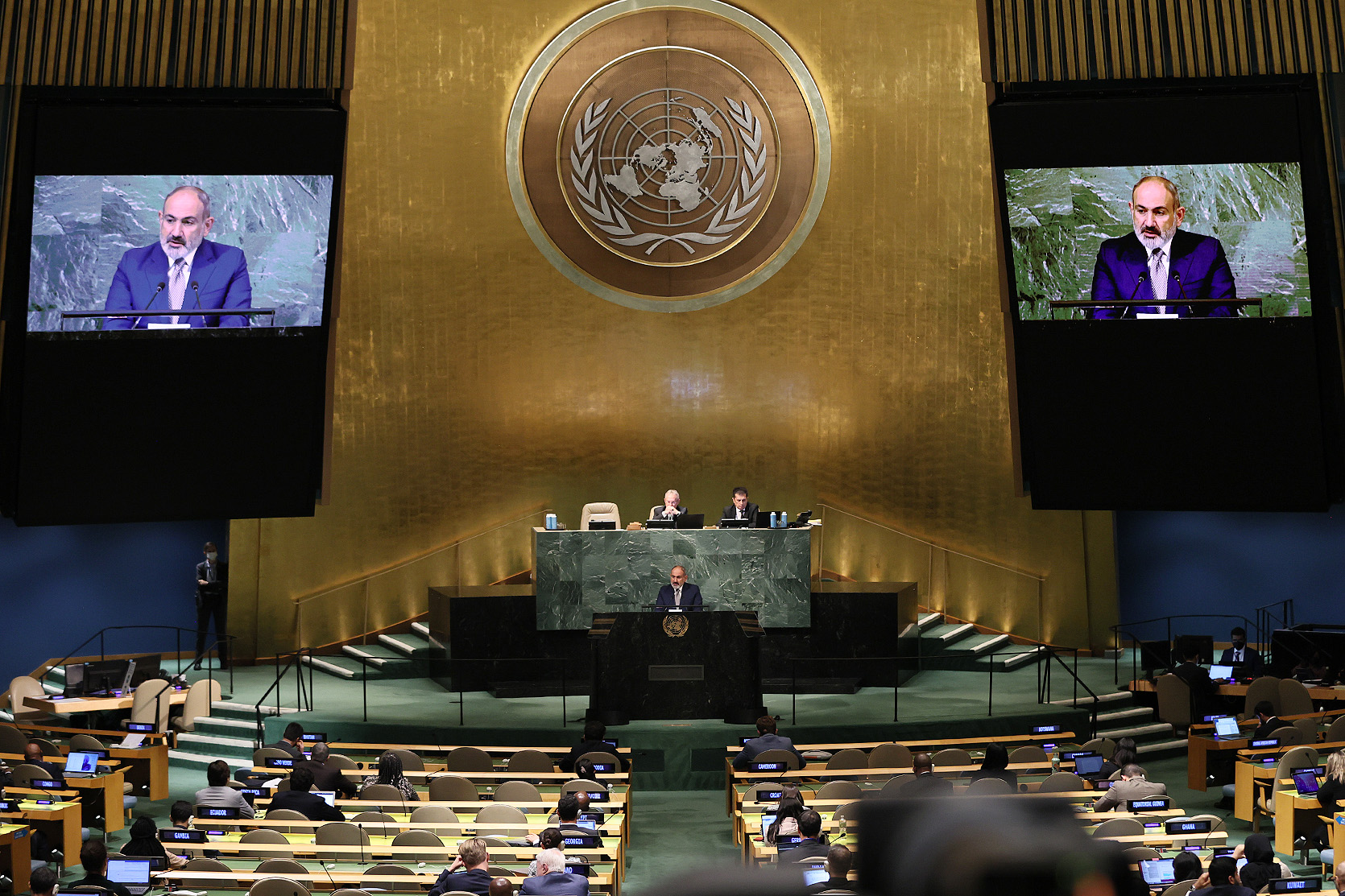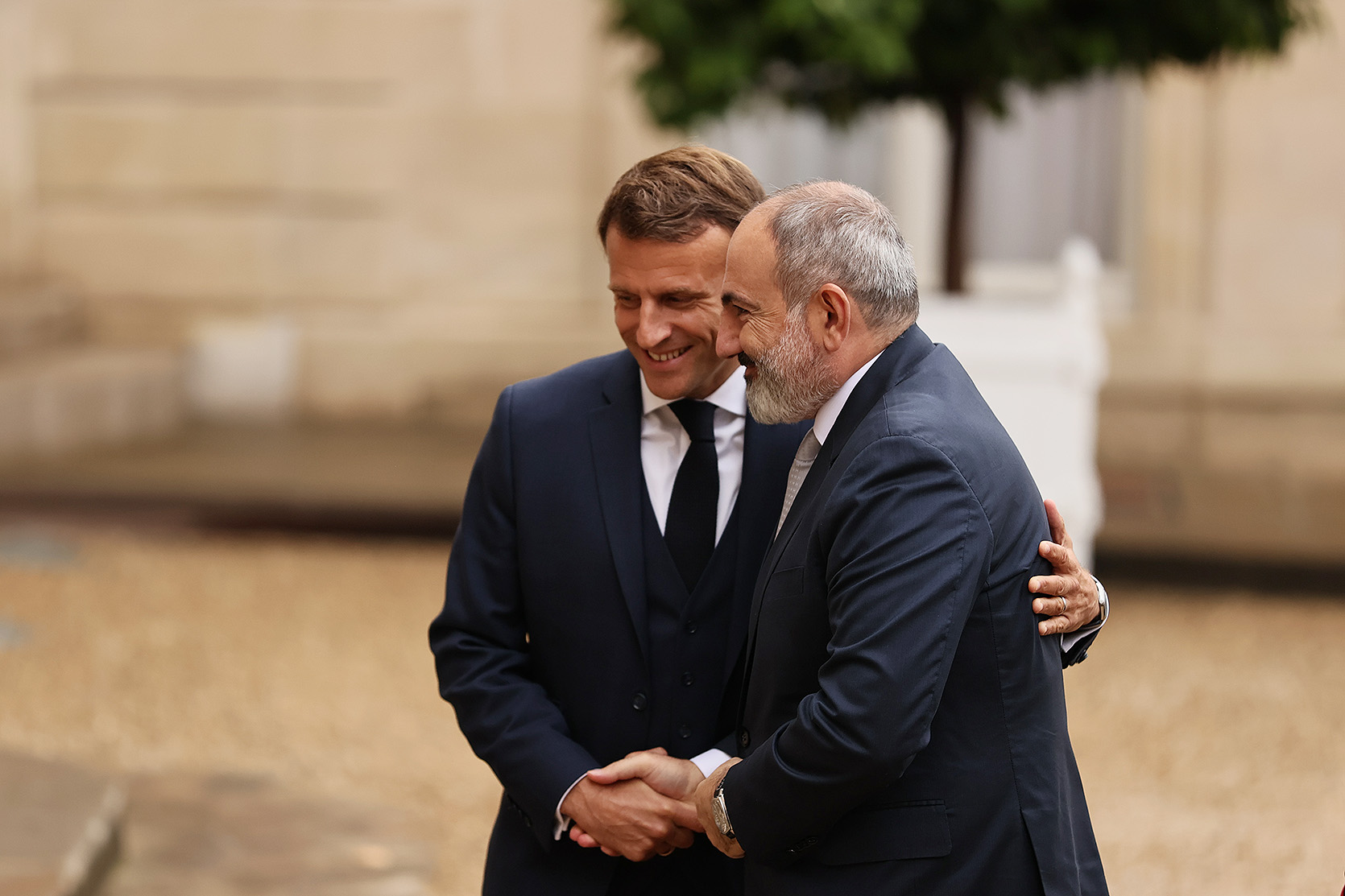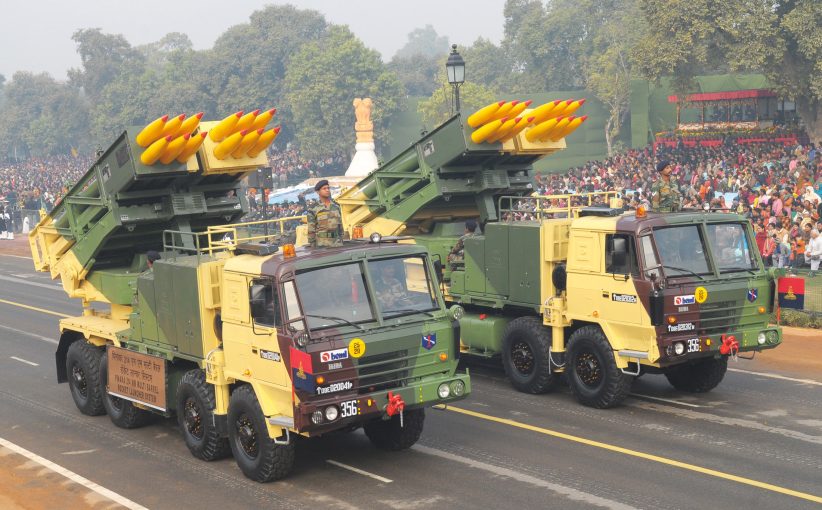Negotiations between Foreign Ministers of Armenia and Azerbaijan: mediators remain behind the scenes
Mirzoyan-Bayramov meeting in Geneva
On October 2, the Foreign Ministers of Armenia and Azerbaijan Ararat Mirzoyan and Jeyhun Bayramov met in Geneva. It was announced in advance that the EU Special Representative for the South Caucasus, Toivo Klaar, and the US OSCE Minsk Group Co-Chair and Senior Adviser on Caucasus Negotiations, Philip Ricker, would also take part. However, their names are not mentioned as having attended.

On the morning of October 3, scant information appeared with a list of topics that were discussed during the meeting. The Armenian side insisted on the withdrawal of Azerbaijani troops from the sovereign territory of the country. The issue of introducing international mechanisms to control the border situation was discussed. It is also reported that the ministers “exchanged views on the peace treaty between Armenia and Azerbaijan” and the issue of unblocking regional roads.
This is the second meeting of Azerbaijani and Armenian ministers after the September war. The first took place on September 20 in New York under the mediation of US Secretary of State Blinken.
All details from the Geneva talks known at the moment, as well as comments from experts from Baku and Yerevan.
- “Karabakh may not be mentioned in the peace agreement with Azerbaijan” – Pashinyan
- “There is no need to duplicate formats”: about Armenia-Azerbaijan negotiations
- “Azerbaijan intends to occupy other territories of Armenia” – Pashinyan from UN rostrum
- “Without border delimitation, no one will be able to say where it comes from” – Ilham Aliyev
Information from Yerevan
The second Mirzoyan-Bayramov talks are being held with the mediation of Western partners. The Armenian authorities regard the recent short war as “an unprovoked and unjustified aggression by Azerbaijan against the sovereign Republic of Armenia.“
During the hostilities, more than 200 Armenian soldiers were killed or went missing, and more than twenty were captured. As the Armenian side reported, the Azerbaijani Armed Forces purposely fired at peaceful settlements and vital civilian infrastructure facilities. Three dead and two missing are civilians.
On the morning of October 3 the Armenian Foreign Ministry published the following information on its website:
“Ararat Mirzoyan confirmed the Armenoan position on the withdrawal of Azerbaijani troops from the sovereign territory of the Republic of Armenia and the immediate release of all Armenian prisoners of war. The importance of introducing international mechanisms to control the border situation was noted.
The Minister of Foreign Affairs of the Republic of Armenia stressed that the war crimes committed by the Azerbaijani Armed Forces should be given a clear assessment by international institutions, and criminals should be held accountable.
The parties exchanged views on the peace treaty between Armenia and Azerbaijan, ensuring the rights and security guarantees of the Armenians of Nagorno-Karabakh, including through the creation of a discussion mechanism between Stepanakert and Baku.
There was mutual understanding that regional transport routes should be unblocked under the sovereignty and jurisdiction of the countries.”
On the eve of the Geneva talks, Azerbaijan stated that Armenia intended to disrupt the talks, to which the press secretary of the Armenian Foreign Ministry replied:
“Despite the provocations of Azerbaijan, Armenia will take part in the meeting on October 2 in Geneva. The statements of the Azerbaijani Foreign Ministry that Armenia is trying to disrupt the negotiations are groundless. Armenia has a constructive attitude, strives to achieve long-term peace in the South Caucasus and expects the same from Azerbaijan.”
On the morning of October 2, that is, a few hours before the start of negotiations, the Armenian Foreign Ministry published another statement on its website concerning a video of the execution of Armenian prisoners of war by the Azerbaijani Armed Forces being distributed on social networks:
“A number of videos consistently distributed by Azerbaijani users on social networks testify to the war crimes of the Azerbaijani Armed Forces – extrajudicial killings of Armenian prisoners of war, torture of Armenian soldiers, including women, and desecration of bodies.
The Republic of Armenia demands a clear assessment of the egregious war crimes committed by the Azerbaijani Armed Forces in this and previous periods. We will be consistent in voicing the problem at the relevant international platforms and authorities, bringing the perpetrators and organizers of the above crimes to justice, including with the application of international sanctions. A proper international investigation is imperative.”
Based on this, the Armenian expert community assumed that difficult negotiations were ahead with a long list of issues to be discussed.
On the eve of the Mirzoyan-Bayramov meeting, the Prime Minister of Armenia himself stated that on October 2 in Geneva “substantive negotiations on the text of a peace agreement” with Azerbaijan should begin. But official information on the results of the talks refers only to an “exchange of views” on this issue.
Commentary from Yerevan
According to political scientist Armen Baghdasaryan, no one can say when Armenia and Azerbaijan will sign a peace treaty. He says there is tension after the recent hostilities, but the negotiation process has not stopped.
Baghdasaryan believes that Azerbaijan is actually against signing a peace treaty, including on the basis of five principles proposed by its own side.
“Baku needs the peace agreement not to be signed, but to create the impression that this is happening because of Armenia. The signing of the agreement would mean mutual recognition of the borders, which would not allow new aggressions on the border. They don’t even hide in Baku that they want to seize the whole of Syunik [in southern Armenia], and some territories around Lake Sevan, which would be impossible if a peace treaty is signed,” Baghdasaryan told JAMnews.
That is why, according to Baghdasaryan, Azerbaijan is actively trying to portray Armenia as rejecting its proposals. For the same reason, Baku is not talking about the six proposals for a peace agreement officially sent from Armenia:
“I am sure that the publication of video of the brutal murder of Armenian prisoners is also connected with this, which of course aggravates the mood in Armenia against the signing of peace. Thus they are trying to influence public opinion, to show that Armenia is allegedly more aggressive, and calls for revenge, that is, it is Armenia refusing to sign a peace treaty.”
As for the current stage of Armenia-Azerbaijan negotiation process, Baghdasaryan finds it difficult to say, since there is also a non-public, non-advertised segment about which he has no information.
Speaking on the creation of a mechanism for negotiations between Stepanakert and Baku, Baghdasaryan noted that sooner or later these negotiations will take place. Baku has no such desire, but there is no alternative.
In his view, the dialogue between Nagorno-Karabakh and Azerbaijan can be direct, or indirect through Russia.
“At the moment, the Nagorno-Karabakh Defense Army is not able to independently ensure its own security, therefore this is only possible if the presence of Russian peacekeepers is maintained and even with their powers expanded,” he said.
Armen Baghdasaryan emphasizes that only Azerbaijan considers the Karabakh issue resolved; the international community does not share this point of view, so “the issue is not closed, and Baku cannot avoid it.”
In his opinion, no matter what security mechanism operates in Nagorno-Karabakh, Armenia’s armed forces should be present to guarantee security.
Referring to Azerbaijan’s demand for the “withdrawal of Armenian troops” from NK, Baghdasaryan stressed that if Baku tries to resolve the issue by force, this would mean not the disbandment of the Defense Army, but the final expulsion of Armenians:
“The existence and powers of the Artsakh Defense Army should be a key part of further negotiations.”
He says the tension on the Armenian-Azerbaijani border will significantly decrease if an international observation mission is deployed along the border.
“Since both Armenia and Azerbaijan are members of the Council of Europe, yes, there should be an interest on the part of the Europeans to control the situation here, to prevent any country from trying to increase its influence here, taking advantage of the tension between Armenia and Azerbaijan, manipulating the situation.”
He believes that Europe and the US are interested in launching a monitoring mechanism.
Baghdasaryan says that Azerbaijan does not need a road that is under the sovereign control of Armenia.
“Therefore, if we insist on this, Azerbaijan will in every possible way torpedo the unblocking of roads, that is, continue to keep Armenia under blockade. There is an international opinion that these roads should remain under the sovereign control of each country through which they pass. But I don’t think the international community has enough leverage to put pressure on Azerbaijan,” Baghdasaryan concluded.
Information from Baku
“On October 2, Azerbaijani Foreign Minister Jeyhun Bayramov, at a bilateral meeting with his Armenian counterpart Ararat Mirzoyan in Geneva, stressed the need for the complete withdrawal of the Armenian Armed Forces from the territory of the Republic of Azerbaijan,” the press service of the Azerbaijani Foreign Ministry said.
According to the source, the meeting was organized in accordance with the instruction to the foreign ministers on the preparation of the text of the peace treaty, which was given as a result of the meeting held on August 31 in Brussels between the President of the Republic of Azerbaijan Ilham Aliyev and the Prime Minister of the Republic of Armenia Nikol Pashinyan, with the participation of European Council President Charles Michel.
“Bayramov stressed that in the post-conflict period it is important to focus on the settlement of interstate relations between Azerbaijan and Armenia and the signing of a peace treaty. In this regard, the minister brought to the attention of the Armenian side in detail the elements of the agreement, based on the five basic principles proposed by Azerbaijan.
During the meeting, taking into account the tension on the non-delimited border, Azerbaijan proposed to hold the next meeting of the bilateral commission on delimitation not in November, as agreed earlier, but in October this year.
Bayramov stressed the need for the complete withdrawal of the Armenian Armed Forces from the territory of Azerbaijan in accordance with the tripartite statements signed by the leaders of Azerbaijan, Armenia and Russia and the agreements reached between them, the opening of transport and communication lines as soon as possible on the basis of preliminary agreements reached within the tripartite commission led by deputy prime ministers -Ministers, making progress on delimitation work.
Touching upon humanitarian issues, Minister J. Bayramov stressed the importance of clarifying the fate of almost 4,000 missing Azerbaijanis, the inadmissibility of the Armenian side continuing to lay mines on the territory of Azerbaijan, which caused numerous tragic losses, and that this is a gross violation of Armenia’s obligations under the tripartite statement and military crime.
The head of the Azerbaijani Foreign Ministry once again expressed Azerbaijan’s commitment to ensuring peace and stability in the region and readiness to sign a peace treaty. It was agreed to continue discussions in this direction,” the Foreign Ministry noted.
Gruesome video on social networks
The day before the meeting, a video was circulated on social networks allegedly showing Azerbaijani soldiers shooting Armenian soldiers at close range.
Statements were made by the Prosecutor General’s Office and the Ministry of Foreign Affairs of Azerbaijan regarding this:
“The military prosecutor’s office of Azerbaijan has launched an investigation in connection with video footage circulated on social networks, presented as alleged images of the execution of Armenian soldiers by Azerbaijani soldiers.
The military prosecutor’s office is conducting a full and comprehensive investigation into whether these video frames are genuine, specifying the time and place where the video was filmed, the identity of the military personnel depicted on them, as well as all other points important for establishing an objective truth,” the press service said.
“The statement of the Armenian Foreign Ministry dated October 2, 2022, with accusations against the Armed Forces of Azerbaijan of allegedly committing war crimes, is a vivid example of the hypocrisy of a country that itself has pursued an aggressive policy for decades, expelled about a million people from their homes, and committed atrocities against military and civilians”, the press service of the Azerbaijani Foreign Ministry replied to the corresponding Armenian body.
“We emphasize that, unlike Armenia, Azerbaijan takes its international obligations seriously, and allegations related to crimes committed during military operations are investigated by the relevant state institutions,” the report further notes.
The Azerbaijani Foreign Ministry recalled that “since the first Karabakh war, the Armenian armed forces have committed an unprecedented massacre not only against the Azerbaijani military, but also against civilians. On February 26, 1992, 613 civilians were brutally killed in the city of Khojaly in just one night. Armenia has not provided any information about the fate of about 4,000 Azerbaijanis who have gone missing since the beginning of the conflict.
In October 2020, the Armenian Armed Forces subjected the civilian population of the cities of Ganja, Barda and Mingachevir of Azerbaijan to shelling with ballistic missiles, committed massacres, crimes against humanity.
Mines laid by Armenia still pose a serious threat to the lives of people in the region today. From November 2020 to the present, up to 250 people have become victims of mines, mostly civilians.
At the same time, among the mines that have been discovered, there was ammunition produced in Armenia in 2021, which is proof that this state continues its war crimes against Azerbaijanis.
The Armenian government has not yet taken any practical measures to prevent further crimes or to hold the relevant persons accountable for crimes committed,” the Azerbaijani Foreign Ministry said in a statement.
Baku strongly condemns “Armenia’s attempts to mislead the international community and hide its responsibility by spreading unfounded allegations.”
“We demand that Armenia fulfill its international obligations and bring to justice those responsible for numerous war crimes,” the Azerbaijani Foreign Ministry said in a commentary.
Comment from Baku
“The meeting of the Foreign Ministers of Azerbaijan and Armenia took place in Geneva. Switzerland positions itself in the world as a neutral country far from conflicts and political games. So this gives Bayramov’s meeting with Mirzoyan an additional background of non-interference of a third party in the negotiations,” Azerbaijani expert Agshin Kerimov believes.
But going a little deeper into the ups and downs, you can see that this meeting was organized with the assistance of the European Union, perhaps at the suggestion of the United States, Kerimov adds.
Kerimov draws attention to two nuances:
1. In the Geneva round of negotiations, the tasks of preparing the text of the peace treaty discussed on August 31 at the meeting between Aliyev and Pashinyan in Brussels were discussed.
2. On the day of the Geneva meeting of the foreign ministers of the two countries, US National Security Adviser Jake Sullivan met in Istanbul with Turkish presidential spokesman Ibrahim Kalin. Among the issues discussed was support for peace talks between Azerbaijan and Armenia.
“If you try to comment on the knots that at first glance seem to be tangled, it can be noted that both the United States and Russia see Turkey as a central player in the peace treaty between Armenia and Azerbaijan.
“Turkey has good relations with Russia. True, there are problems in relations with the West, but Ankara’s moderation is beneficial for both interested parties; this allows a balance between global forces.
“Currently, Russia and the United States are closely following the processes in the South Caucasus, and keeping this region under their attention. Washington is trying to reduce the historical, political and military role of Russia in the region to the level of non-interference in current processes.
“But desires do not always coincide with reality. Russia uses cooperation with Turkey and good relations with Azerbaijan to build up pressure on Armenia and squeeze out the influence of the White House.
“Despite the struggle of global forces around the peace agenda between Azerbaijan and Armenia, this issue has already moved from the conceptual level to the level of detailed conditions.
“It can be predicted that in parallel with peace talks, Azerbaijan may transfer its military operations to a new phase, because Yerevan is not inclined to respond to Baku’s demand for a border buffer zone. But this is unlikely to affect the course of the negotiations.
“But we already have new agreements that will help overcome the difficulties between the two countries. So, at a meeting between Bayramov and Mirzoyan, the parties agreed to postpone the meeting of the delimitation commissions from November to October. It can be assumed that Armenia and Azerbaijan are in a hurry to implement some kind of yet unpublished mutual agreement.
“At the same time, Baku again demanded the withdrawal of the Armenian armed forces from the territory of Azerbaijan in accordance with the 4th article of the tripartite statement of November 10, 2020. This requirement is not new, and acquires new content against the backdrop of the latest large-scale border clashes,” Karimov said.
The expert also shared his predictions regarding the peace agenda between the two countries:
“1. An initial detailed view of a peace treaty has been worked out, and after that, global forces represented by Russia and the United States will continue their efforts to match these details to their interests. For this reason, in the coming month military clashes on the border between Azerbaijan and Armenia kindled from outside cannot be ruled out;
2. Against the backdrop of the ongoing war in Ukraine, the South Caucasus can become the stage for a variety of scenarios, and Azerbaijan, from a position of strength, can expand its demands in the context of regional security;
3. Turkey will continue to try to change the conditions in the South Caucasus in its favor, taking into account the interests of Azerbaijan.”
Mirzoyan-Bayramov meeting in Geneva





















